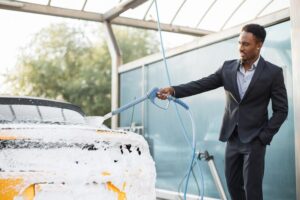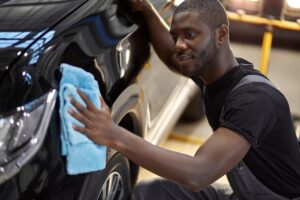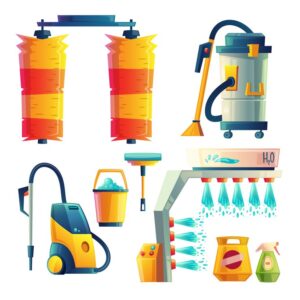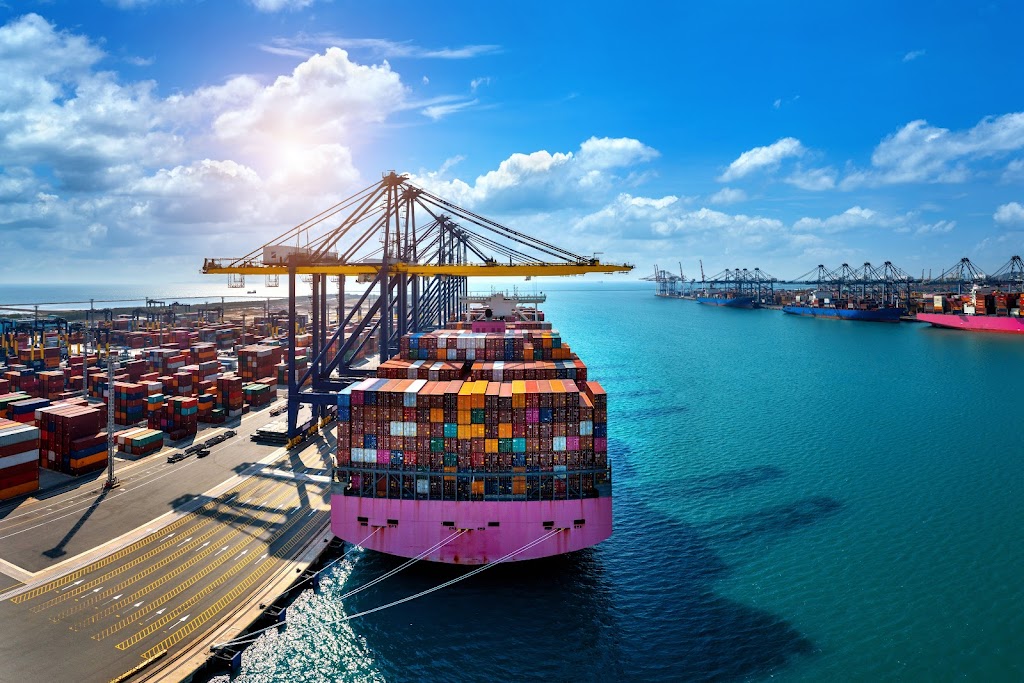Starting a car wash business in South Africa is a lucrative opportunity due to the increasing number of vehicles on the roads and the consistent demand for car cleaning services. This business appeals to aspiring entrepreneurs because of its scalability, flexibility, and the potential for recurring revenue.
That said, success in the car wash business doesn’t come easily or automatically. It requires thoughtful planning, compliance with local regulations, and a strong understanding of what customers really want.
This article aims to help you understand the intricacies of setting up a car wash business in South Africa, including the costs involved and the legal requirements needed to run the business.
Is a car wash a profitable business in South Africa?
Yes, a car wash can be a profitable business in South Africa due to the growing number of vehicles and the consistent need for cleaning services.
On average, car wash businesses in South Africa can generate a steady monthly income, with some owners reporting earnings of over R15,000 to R50,000, depending on the scale and type of operations.
Although, the profitability largely depends on factors such as the location, type of services offered (e.g., manual wash, automated systems, or mobile services), and operational efficiency. For instance, car washes in high-traffic areas or near shopping centers often attract more customers, leading to higher revenue.
With that being said, below are key steps to consider when starting a car wash business in south africa.
Market Research and Feasibility
Before starting a car wash business in South Africa, thorough market research is a must. It helps you understand customer behavior, industry trends, and your competition, giving you the insights needed to make smart business decisions.
Learning about your target audience and the local demand helps you tailor your services to meet customer needs while ensuring that your business is profitable
Tools like surveys, focus groups, and market analysis can highlight important trends, such as the rising interest in waterless or eco-friendly car wash services, allowing you to align your business with what’s in demand.
Choosing the right location is also important. Look into factors like vehicle density (number of cars in a given area), proximity to residential areas, shopping centers, and high-traffic intersections to gauge potential demand.
Also, assess the competition in the area to identify gaps your business can fill. For instance, if competitors mainly offer manual car washes, you could stand out by introducing automated or mobile services that cater to convenience-focused customers.
Business Planning
A business plan guides your decisions and in most cases attracts potential investors or financial support.
A good business plan should start by clearly outlining your business goals, the services you plan to offer, and the target audience you aim to serve.
Your business plan should also include a detailed cost breakdown. This means looking at your startup expenses such as buying equipment, setting up the location, and covering licensing fees as well as your ongoing operational costs, like water, utilities, labor, and marketing.
Don’t forget to include revenue projections to estimate how much you expect to earn, especially in the first few years.
A solid business plan also thinks ahead about growth. Consider how you could expand your services, such as offering detailing, waxing, or even mobile car wash units.
Legal and Regulatory Compliance
When starting a car wash business in South Africa, ensure that you are fully compliant with all legal and regulatory requirements.
The first step is registering your business with the Companies and Intellectual Property Commission (CIPC). This process formalizes your business and provides you with a registered company name and business number, which are essential for tax and legal purposes.
You can register your business online through the CIPC’s website, and you should choose the right business structure, such as a sole proprietorship or a close corporation, depending on your goals.
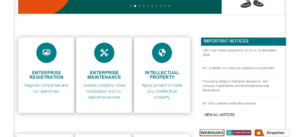 |
| CIPC’s website front page |
In addition to business registration, you’ll need to obtain various permits and licenses. These may include municipal permits to operate your car wash in a specific location. Check with your local municipality to ensure you have the necessary clearance to start your business in that area.
You’ll also need to comply with environmental laws, especially when it comes to water usage and waste disposal. South Africa has strict regulations regarding water consumption, particularly in areas experiencing drought or water scarcity.
Selecting the Best Location for Your Car Wash
Choosing the right location for your car wash is one of the most important decisions you’ll make, as it directly impacts the success of your business. Accessibility and visibility are key factors in drawing customers to your service.
Ideally, your car wash should be in an area that is easy for vehicles to access, with clear signage that makes it visible from the road. The more visible and convenient it is for drivers, the more likely they are to stop in for a quick wash. This is especially important in South Africa, where busy urban areas and high-traffic zones offer more footfall, leading to a higher number of potential customers.
When considering what is the best location for a car wash, proximity to busy roads, residential areas, and shopping centers is crucial. Car washes near major roads or highways can attract drivers looking for a quick and convenient stop, while locations near residential areas benefit from regular customers who need routine cleaning for their vehicles.
Shopping centers also provide a great opportunity, as people can drop off their cars for washing while they shop. The key is to find a spot where there’s a steady flow of traffic, both in terms of vehicles and potential customers, but where competition isn’t too fierce.
Setting Up Operations
Setting up operations for your car wash business involves ensuring you have the right equipment, staffing, and training in place to provide high-quality service that will keep customers coming back.
Essential Equipment
Key pieces of car wash business equipment include pressure washers, which are essential for cleaning vehicles quickly and effectively. You’ll also need vacuum cleaners for interior cleaning, as well as water recycling systems, which are becoming increasingly important due to environmental regulations and water conservation efforts.
Other important equipment might include drying systems, foam sprayers, and detailing tools for additional services like waxing and polishing.
Staffing Needs and Training
You’ll need a team that can operate the equipment efficiently while providing excellent customer service. Depending on the size of your car wash, this may include front-line staff, car washers, detailers, and customer service representatives.
They should be knowledgeable about the equipment, safe cleaning practices, and customer service expectations.
Good customer service can set your business apart, and investing in staff training will ensure that customers have a positive experience every time they visit.
Cost Analysis
Starting a car wash business involves a variety of costs, which will vary depending on the type of car wash you choose to set up—manual, self-service, or automated. Each option has its own set of startup costs and ongoing operational expenses.
A manual car wash is the least expensive option, requiring basic equipment such as pressure washers, hoses, vacuums, and cleaning supplies like soap and wax.
For a small-scale operation, the initial investment typically ranges from R50,000 to R200,000, depending on factors like location and setup. Additional costs include leasing property, signage, and obtaining the necessary licenses.
As for a self-service car wash which offers more customer convenience and requires additional equipment, such as coin-operated wash stations, water tanks, and soap dispensers.
The startup costs for this model can range from R250,000 to R500,000, depending on the scale and equipment quality. In addition to the core setup, you may also need to invest in building customer-focused infrastructure, such as waiting areas or adequate parking spaces, to ensure a positive experience for clients.
The most expensive option is an automated car wash, which involves specialized machinery like conveyor belts, automated dryers, robotic arms, and water recycling systems.
The initial investment for an automated car wash can range from R1 million to R3 million or more. The costs depend on the technology used and the overall size of the operation. While this option requires the highest upfront capital, it offers significant efficiency and the potential for handling high volumes of customers.
Marketing Your Car Wash Business
Social media platforms like Facebook and Instagram are effective for sharing promotions, showcasing your work, and reaching targeted demographics in your area.
Running promotional offers, such as discounts or referral deals, can incentivize new customers to try your services, while engaging content like before-and-after photos or eco-friendly tips can increase visibility.
Local advertising also plays a vital role in growing your business. Distributing flyers, placing ads in local newspapers, and collaborating with nearby businesses for cross-promotion can boost brand recognition.
Additionally, outdoor signage or boards near high-traffic areas, like busy roads or shopping centers, can catch the attention of potential customers who may not know about your car wash.
To retain customers and encourage repeat business, building brand awareness and implementing loyalty programs are key strategies. Offering rewards or discounts for frequent visits helps keep customers coming back.
Regular communication through newsletters (emails) or seasonal promotions also helps maintain customer interest and strengthens relationships.
In conclusion, starting a car wash business in South Africa presents a promising opportunity for entrepreneurs due to the increasing demand for vehicle cleaning services.
How much does it cost to start a car wash in SA?
The startup costs for a car wash in South Africa depend on the type of car wash you plan to open. A manual car wash requires an initial investment of R50,000 to R200,000, covering essential equipment like pressure washers, hoses, vacuums, and cleaning supplies.
A self-service car wash is more capital-intensive, with estimated costs between R250,000 and R500,000, as it includes coin-operated systems and additional infrastructure. For a fully automated car wash, the costs can range from R1 million to R3 million or more, given the need for specialized machinery and advanced technology. These figures can vary based on location, scale, and equipment quality.
How much does a car wash make in South Africa per month?
The monthly income of a car wash in South Africa varies widely based on location, services offered, and customer traffic. On average, a manual car wash can earn between R30,000 and R80,000 per month.
Automated car washes, which have higher throughput, can generate monthly revenues of R100,000 to R500,000 or more, depending on their capacity and the range of additional services, such as detailing or waxing. Factors like seasonality and local competition also affect income levels.
What type of car wash is most profitable?
The automated car wash is generally the most profitable type due to its ability to handle a high volume of vehicles with minimal labor costs. These car washes can offer services at competitive prices while ensuring faster turnover.
However, the profitability also depends on location and the level of customer demand. Businesses offering value-added services like mobile detailing or eco-friendly cleaning solutions can boost profits by catering to niche markets or providing subscription plans for regular customers.
What are the legal requirements for a car wash business in South Africa?
To legally operate a car wash in South Africa, you need to register your business with the Companies and Intellectual Property Commission (CIPC). You must also secure permits from your local municipality, which often include zoning clearance to confirm your business can operate in the chosen area.
Environmental regulations also play a significant role; you may need to comply with water use restrictions and demonstrate that your business incorporates water recycling systems or eco-friendl
y practices. Some municipalities require specific environmental impact assessments before granting permits.

